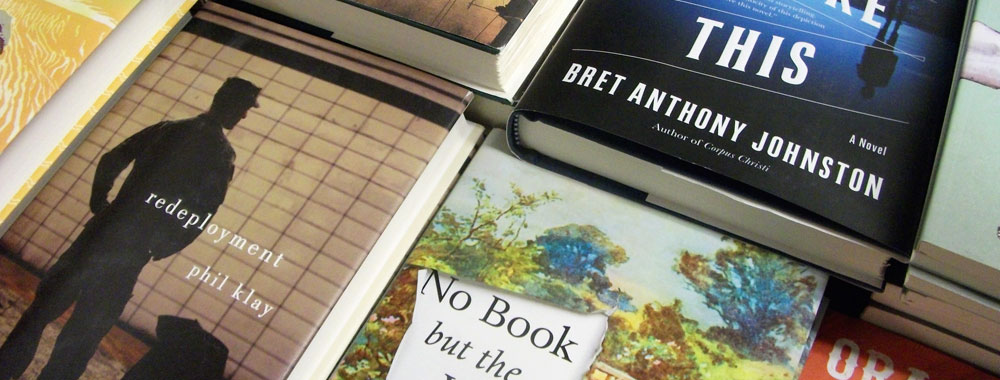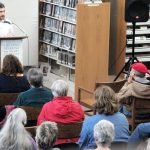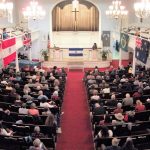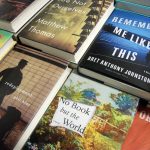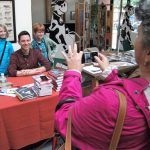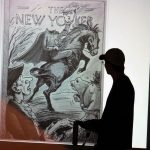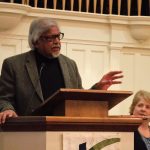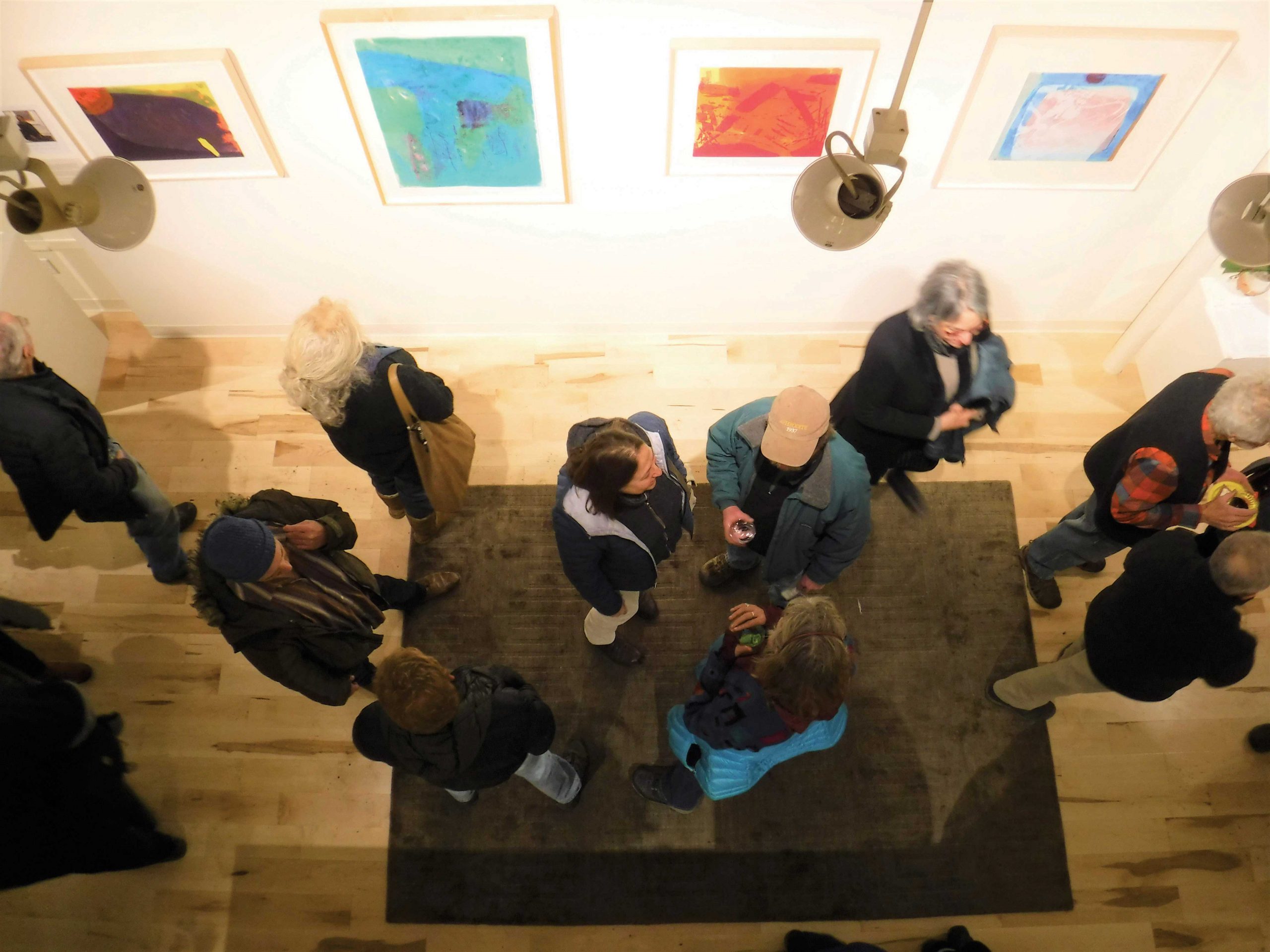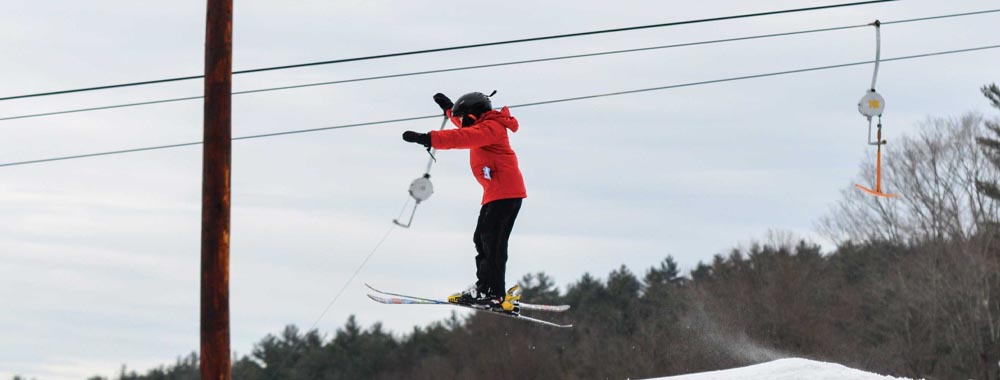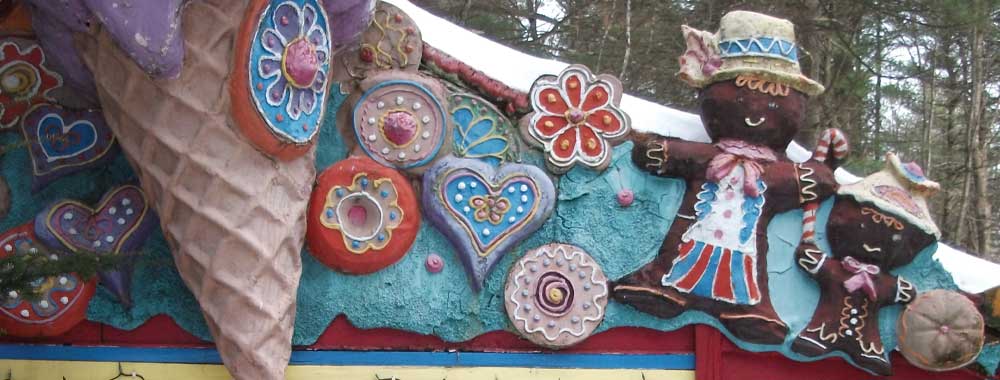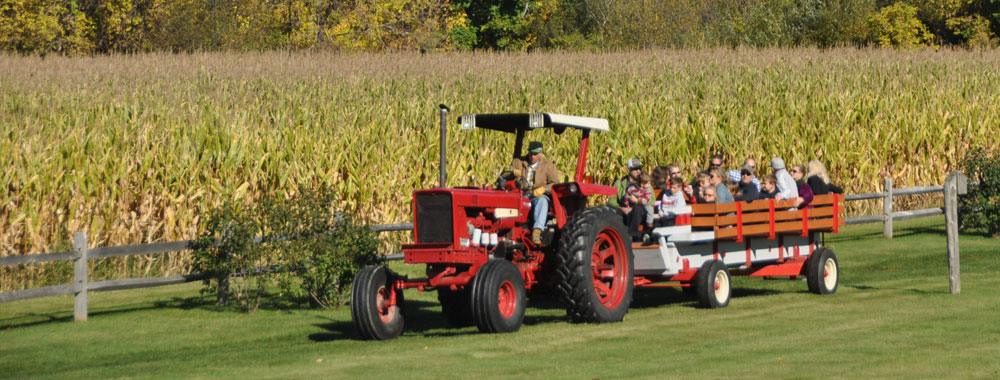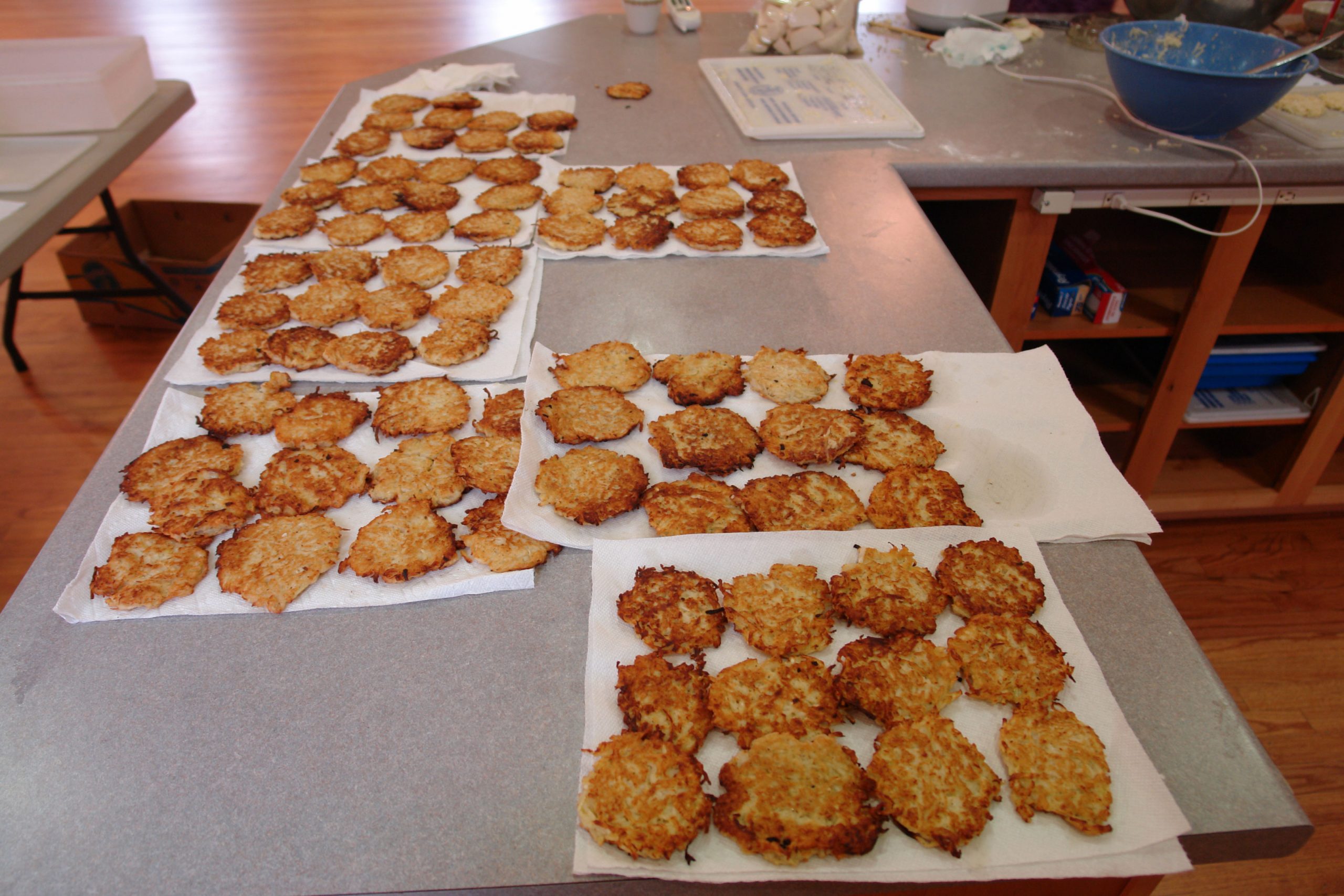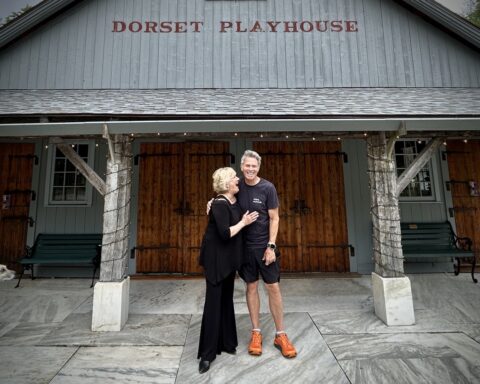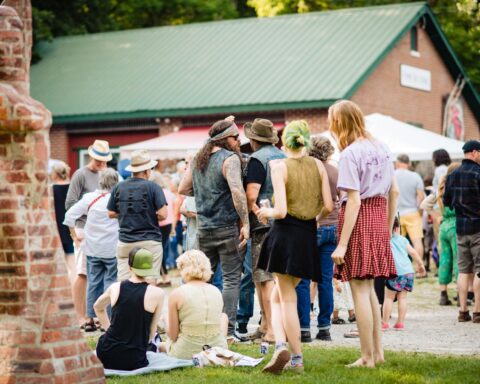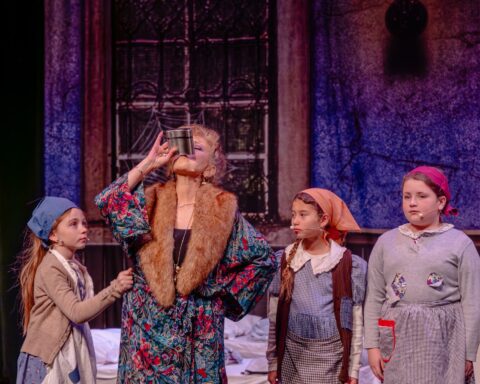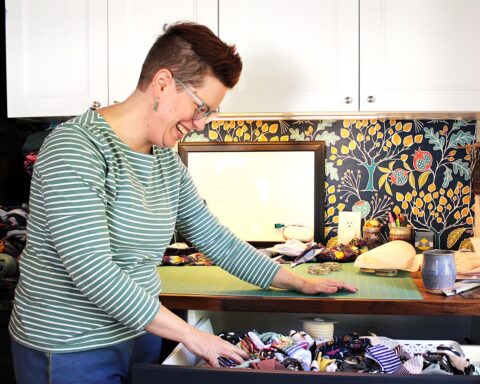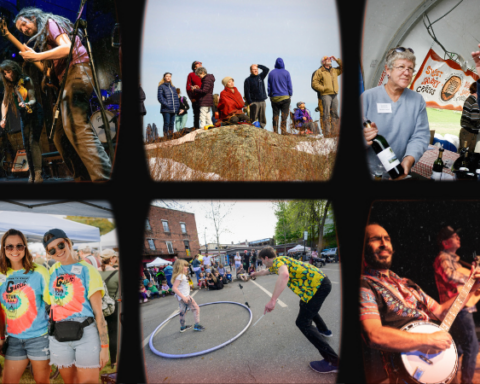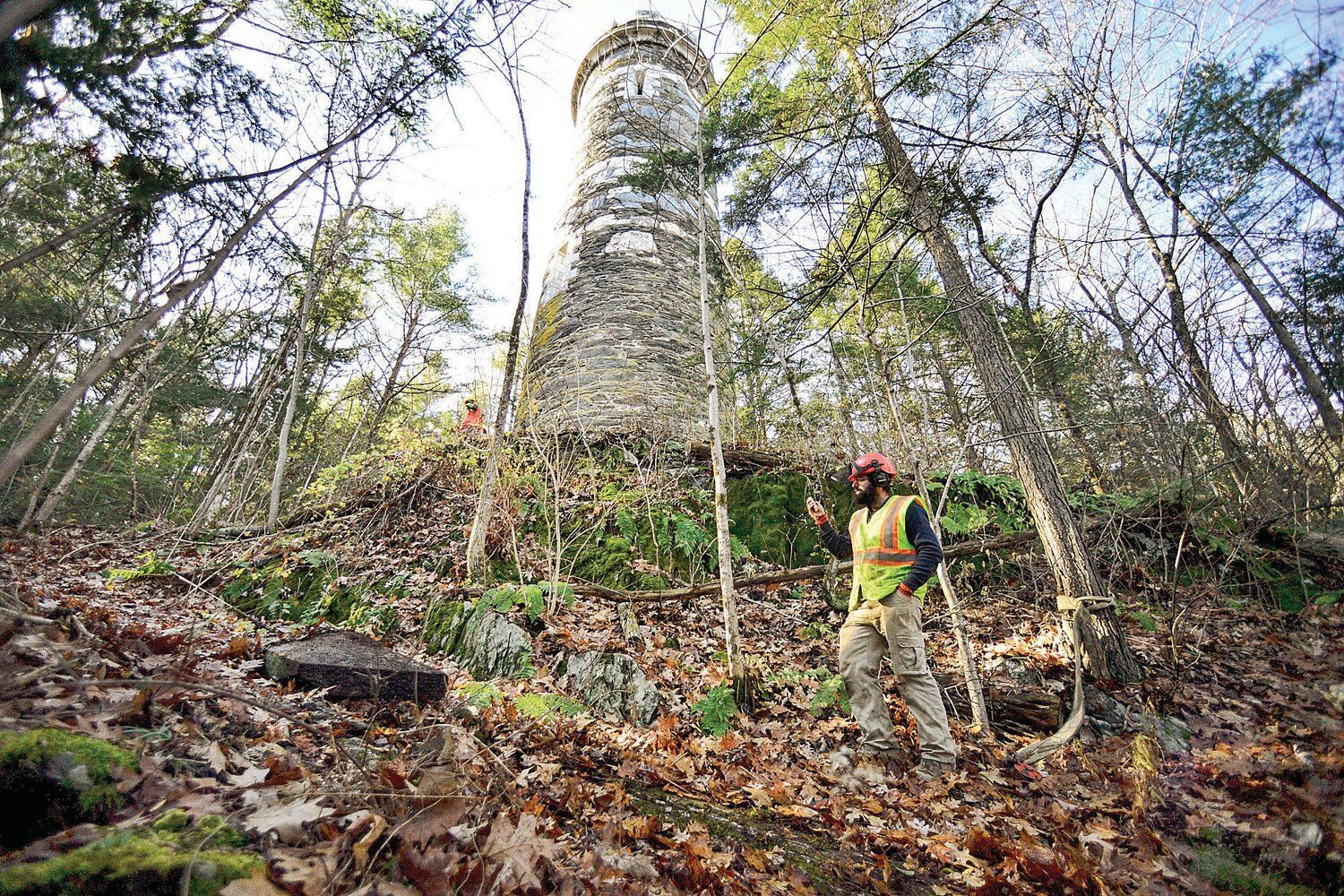By Kevin O’Connor
Flip through the New York Times in the fall of 2002 and you’d find recommendations for a concert series at Carnegie Hall, a Renaissance and Baroque print show at the Baltimore Museum of Art and a first-time program set amid the flaming foliage of Vermont.
“The event is the inaugural Brattleboro Literary Festival, from Friday through Sunday at sites around downtown,” the newspaper noted, “where more than two dozen authors and illustrators are to take part in talks, readings, panel discussions, performances and activities for young readers.”
The hundreds of people who arrived that first weekend heard Nobel laureate Saul Bellow and Pulitzer Prize-winning poet Galway Kinnell as well as supporting characters ranging from Howard Frank Mosher, the celebrated Northeast Kingdom writer, to Malachy McCourt, the younger brother of “Angela’s Ashes” memoirist Frank McCourt.
Fifteen years later, volunteer organizers of the now annual festival are preparing to again welcome a slate of prominent authors, including novelist Richard Russo, whose books “Empire Falls” and “Nobody’s Fool” became movies starring Paul Newman, and fellow Pulitzer Prize winner Ron Powers, whose new memoir “No One Cares About Crazy People: The Chaos and Heartbreak of Mental Health in America” has been called “engrossing” by the Wall Street Journal and “powerful” by the Washington Post.
Yet for every big-name presenter such as Azar Nafisi, who shared her autobiographical bestseller “Reading Lolita in Tehran” in 2003, there’s an up-and-comer about to break out.
Take Colum McCann. When the Dublin native arrived in Brattleboro in 2007, he was just finishing a novel, “Let the Great World Spin,” that would win the National Book Award two years later.
Or consider Phil Klay, who snagged the same prize in an even shorter time. The U.S. Marine veteran had served in Iraq before appearing in 2014 with his debut short story collection, “Redeployment.” A month later, he received fiction’s top prize at a black-tie dinner in New York.
The hub of southeastern Vermont, Brattleboro boasts a long association with books. Royall Tyler, author of the first American comedy that was professionally produces, 1787’s “The Contrast,” lived his last years and is buried in town. Rudyard Kipling penned “The Jungle Book” in the 1890s in his landmark of a local home. A century later, the first U.S. edition of Harry Potter rolled out of the nearby Book Press and into publishing history.
Since its start 15 years ago, the festival has aimed to highlight such achievements. But that didn’t stop last fall’s event — featuring nearly 80 novelists, poets and nonfiction writers at almost a dozen downtown venues — from also offering a read on the times.
Vermont artist Harry Bliss, known for his wry, witty New Yorker magazine illustrations, kicked off the program by reminiscing about riding his childhood banana-seat bicycle to his hometown comic book store.
“The things you look at now are going to creep back in the way you see the world,” he told students in the audience. “Life is so full of ideas — you just have to be receptive to them. Respect the little things and be curious.”
The artist also drew smiles from adults when, plugging into PowerPoint, he shared works that played off technology. First came his New Yorker cover of a Manhattan skyline crackling with Fourth of July fireworks as one holed-up apartment dweller watches the show outside his window on television. Next arrived his drawing of a couple standing in front of a museum masterpiece while staring at their cellphones.
“Put your devices away,” the artist advised. “Look with your own eyes.”
At another reading, Arun Gandhi, grandson of the legendary Indian leader Mahatma Gandhi, revealed memories captured in his “Grandfather Gandhi” children’s books.
“The more materialistic we become, the less moral we are,” the 83-year-old descendent said. “We are governed by greed and power. The easiest way to control is through fear. Grandfather said nobody oppresses us more than we oppress ourselves by accepting that. We have to stand up and say not anymore.”
The goal, the author added, is not to become lightning, but instead light.
“One of the things my grandfather always insisted we should do is say, ‘I’m going to be a better person today than yesterday.’ We are all interrelated and interdependent. We should be strengthening the ties between us so we can all grow upwards. We may not reach the level that he reached, but at least we had the satisfaction that we were honest in our living.”
This year’s festival, scheduled for Oct. 12-15, is set to feature nearly 60 authors at a downtown locations ranging from the stately steepled Centre Congregational Church to the glass-roofed River Garden.
A decade and a half after its start, the event continues to draw national notice. When the website writerscircle.com recently listed its “Top 5 Writing and Literary Festivals,” four major metropolitan extravaganzas — in Brooklyn, N.Y.; Portland, Ore.; Vancouver, B.C.; and Washington, D.C. — found themselves named alongside one small-town event: The Brattleboro Literary Festival.
“The very first festival featured Nobel Prize winning legend Saul Bellow in his last public appearance,” the site said of the Vermont program. “Since then the festival has gone on to present 400 authors, including winners of the Pulitzer Prize, National Book Award, National Book Critics Circle Award, Newbery Medal, and the Caldecott Medal.”
And, if history repeats itself, soon a notable number more.
Bookmark this …
Vermont’s Brattleboro Literary Festival will take place Oct. 12-15 at almost a dozen downtown locations. The volunteer-run event is free and open to the public, although donations are accepted to defray expenses.
A full schedule is available at brattleboroliteraryfestival.org.
